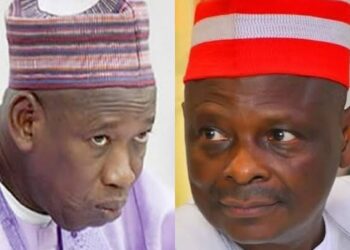By Ajibola Abayomi
Lagos
The Director General, Nigerian Maritime Administration and Safety Agency (NIMASA), Dr. Dakuku Peterside, has disclosed that the piracy bill would be passed into law next year by the National Assembly.
Peterside dropped the hint in Lagos during a visit to the Nigerian Shippers Council.
He said the executive bill was fashioned with the strategic intent that the president would send it to the National Assembly to give it the weight and urgency it requires.
He added that the law was necessary because Nigeria does not have potent laws to fight piracy.
He said that when bandits were caught in Nigerian waters they are fought with laws that are not piracy related.
“Next month, it will be forwarded to the Federal Executive Council (FEC) for endorsement and then to National Assembly.
“I am optimistic that by next year, we will have an anti-piracy law” he assured.
Shipowners blame Nigeria’s loss at IMO elections on poor maritime administration
Poor and incompetent maritime administration as well as lack of political will and sincerity to drive required standards in the nation’s maritime sector, have been listed as core reasons Nigeria failed at the IMO elections last week.
Nigerian Shipowners under the auspices of Ship Owners Association of Nigeria (SOAN) made this assertion at the group’s annual End of the Year Workshop and Dinner tagged “Giving a Critical Lifeline to the Nigerian Maritime Industry” which held at Civic Centre, Lagos.
Addressing stakeholders, SOAN President, Engr. Greg Ogbeifun said that following the fallout of the International Maritime Organisation (IMO) elections into Category ‘C’ “where Nigeria lost and actually came second to the last position”, government should immediately take drastic measures to correct pervading ills that have plagued the sector and hitherto limited its emergence as a leading maritime nation.
Ogbeifun stated that Nigeria’s rejection at the IMO is the world’s vote of no confidence on the nation’s capacity to deal effectively in maritime trade, maintain maritime security, develop maritime infrastructure and raise efficient professionals.
He said: “The world has told us that our maritime domain is sick and almost moribund, that we are not a maritime nation that can be relied on for maritime trade, maritime security, maritime infrastructure or for seafarers and other maritime professionals.”
He said the performance at the elections has “dealt a hard blow” on the “psyche” of the sector and called for the immediate sack of incompetent heads of maritime administration.
Ogbeifun also called government to urgently look into the issues of piracy, kidnapping and armed robbery at sea as situations where Nigeria waters are listed as first-rate zones for these ills by the International Maritime Bureau (IMB) remains harmful to maritime trade.
The IMB in its annual piracy report for 2016 had stated that Nigeria recorded the second the highest number of actual and attempted pirate attacks in the that year after Indonesia with a total of 36 attacks in the year, constituting about 18% of total 191 pirate attacks that happened all round the world.
Ogbeifun further urged Government to midwife the emergence of a Nigerian fleet whether as a public, private or public private partnership citing unfriendly fiscal policies as the bane of limitation on the good job done by the National Committee on Fleet Development.
He bemoaned the average Nigerian situation where recommendations and studies done by various committees and organisations like Nigeria LNG are left to rust away by heads of maritime administration adding that without the political will to forge ahead, the maritime sector will remain comatose.
He also called for a review of some tax laws and policies with a view to enhancing the growth of Nigeria’s maritime industry, as it is done in other countries.
Speaking also on the need for well-trained seafarers, Ogbeifun said the Maritime Academy of Nigeria, Oron, Akwa Ibom should be developed to world standard and cadets trained there instead of the present system in which huge amount of money is spent training thousands of the seafarers abroad , many of whom end up without the mandatory seatime.
Source: NIgeria Maritime News



